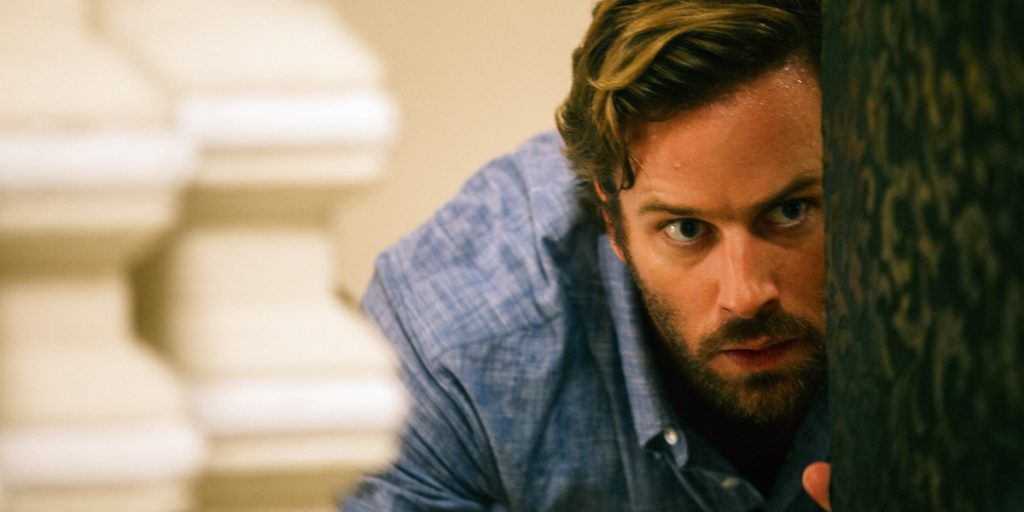There are plenty of excellent films that have recounted tragic moments and served as an emotionally cathartic and thought-provoking means of processing horrific events. For instance, “Schindler’s List” focused on one man’s efforts to save Jews amid the Nazi genocide in WWII, and “United 93” offered a shockingly realistic recreation of the events aboard the plane that was hijacked by terrorists on 9/11.
This weekend marks the release of “Hotel Mumbai,” a riveting and intense historical thriller recounting the 2008 Islamic terrorist attack on the Taj Hotel in Mumbai, India. Scores were killed that day, as a group of about 10 teenage terrorists, under orders from a mysterious man in Pakistan, used automatic weapons, grenades and sheer brutality to attempt revenge on non-Muslim “infidels” who had surpassed them in culture and opportunities. In real life, the mission was part of a much larger, long-running dispute between Pakistan and India over the coveted border region of Kashmir, but the movie doesn't reflect that.
By simplifying the situation, portraying the terrorists solely as evil monsters, with only one or two of the group exhibiting even the briefest flashes of humanity, the film feels like it could run the risk of reigniting tensions that have receded somewhat in the decade since the attack.
And by showing almost no depiction of the vast majority of good and peaceful Muslims in the world, it feels like dangerous anger-inducing propaganda, particularly in the wake of last week's devastating attacks in a mosque in New Zealand.
The question that must be asked here is why filmmakers are releasing this movie now? Perhaps it’s to honor the 10th anniversary of the attack, but it feels more like tearing the scab off a wound rather than letting it heal.
The film opens with the terrorists entering Mumbai, listening to the enraged recorded orders of a mysterious leader via earphones. They are told that their mission is to get revenge on the non-Muslim infidels who have left them behind as the world speeds ahead into greater technology and wealth than they can ever hope to have in their impoverished hometowns. They fan out across Mumbai to unleash a simultaneous barrage of attacks and overwhelm the local police force before entering their real target, the lavish Taj Hotel.
Meanwhile, we are introduced to a young, hardworking Sikh family man named Arjun (played by Dev Patel of “Slumdog Millionaire” fame) as he races to work in the Taj Hotel's kitchen. His command of English gets him plum assignments as a waiter to the most elite VIP Westerner guests, who on this day include an American named David (Armie Hammer), traveling with his Muslim wife and their baby. While husband and wife enjoy a private dinner, the baby is left in the care of their nanny in the hotel suite.
Thus director Anthony Maras and his co-writer John Collee set up a rather brilliant three-tiered approach to the events: we watch the terrorists, Arjun and his fellow staff members, and David and the other elite guests, each from their diverse and divergent perspectives.
Add in a couple of brave local policemen who sneak into the hotel ahead of the slow-arriving special forces soldiers to try to save the day themselves, and you have a recipe for non-stop tension on several levels..
As the terrorists launch their devastating — and often highly profane — assault on the guests and staff, there are many shocking moments of violence, interspersed with incredibly daring and heroic acts from Arjun and the staff, and from David, in his determination to reunite his family and save them from destruction.
The action is almost non-stop, playing as strongly as the best moments of films like “Die Hard,” but the difference here is that we know that these events were real, and that not all our heroes are going to survive. Thus, it's a hard film to watch and emotionally draining to boot.
As mentioned, the biggest concern is that the movie so intensely focuses on the outright evil of a few young men, to the exclusion of any decent Muslims, that it could very well stir up division and anti-Muslim attitudes at a time when the world needs to come together and love each other. Thus, as well-made as “Hotel Mumbai” may be, it's one place viewers might want to consider avoiding.
Start your day with Always Forward, our award-winning e-newsletter. Get this smart, handpicked selection of the day’s top news, analysis, and opinion, delivered to your inbox. Sign up absolutely free today!

